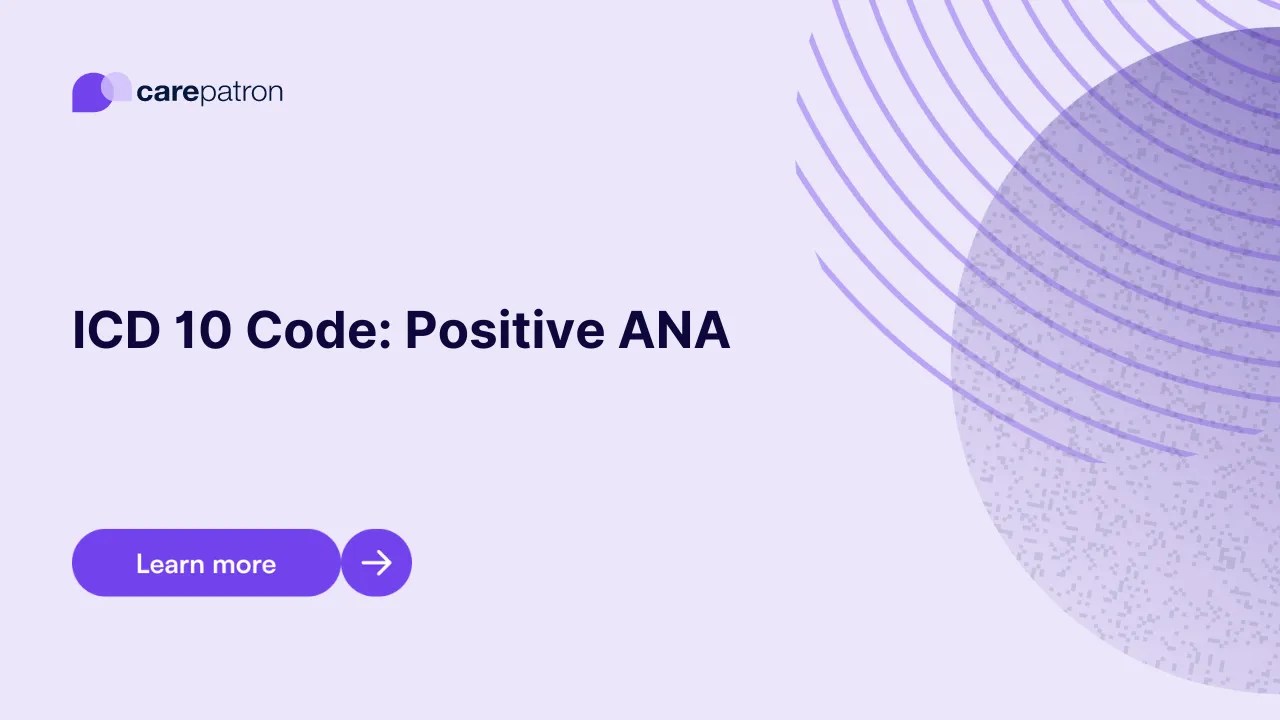For individuals confronting a positive Antinuclear Antibody (ANA) test, the path forward often extends far beyond medical diagnosis. This seemingly specific medical indicator, frequently linked to autoimmune conditions, initiates a complex journey that intertwines diagnostic precision, as represented by ICD-10 coding, with the critical need for robust financial planning and accessible support resources. The implications of such a diagnosis ripple through personal finances, employment, and overall quality of life, underscoring a pressing demand for integrated solutions.
Editor's Note: Published on 2024-07-27. This article explores the facts and social context surrounding "positive ana icd 10 financial planning and support resources".
Medical Crossroads and Diagnostic Precision
A positive ANA test serves as a crucial, though not definitive, biomarker often signaling the presence of an autoimmune disorder. Conditions such as Systemic Lupus Erythematosus (SLE), Sjogren's syndrome, scleroderma, and various others frequently manifest with a positive ANA. The diagnostic process following this initial finding can be extensive, involving numerous specialist consultations, advanced imaging, and further laboratory tests, each contributing to a cumulative financial burden.
"A positive ANA is a gateway, not a destination. It opens the door to further investigation, but also to a potential lifetime of chronic management," stated a leading rheumatologist. "Understanding its implications, both medically and financially, is paramount for patient well-being."
In the intricate landscape of healthcare administration, the International Classification of Diseases, Tenth Revision (ICD-10) system plays a pivotal role. These alphanumeric codes are not merely administrative tools; they are fundamental for accurate diagnosis reporting, treatment planning, billing, and health data collection. For conditions associated with a positive ANA, precise ICD-10 coding ensures appropriate reimbursement for medical services and facilitates epidemiological research into these often-complex diseases. Inaccurate or delayed coding can create significant hurdles for patients in accessing necessary care and for providers in receiving timely payment, directly impacting the continuity and quality of treatment.
The Economic Realities of Chronic Conditions
The diagnosis of a chronic autoimmune condition, often preceded by a positive ANA, ushers in a new set of financial realities for patients and their families. Medical expenses can escalate rapidly, encompassing prescription medications, frequent specialist visits, physical therapy, rehabilitation, and potentially hospitalizations. Many of these conditions require ongoing, specialized treatments that may not always be fully covered by standard health insurance plans, leading to substantial out-of-pocket costs.
